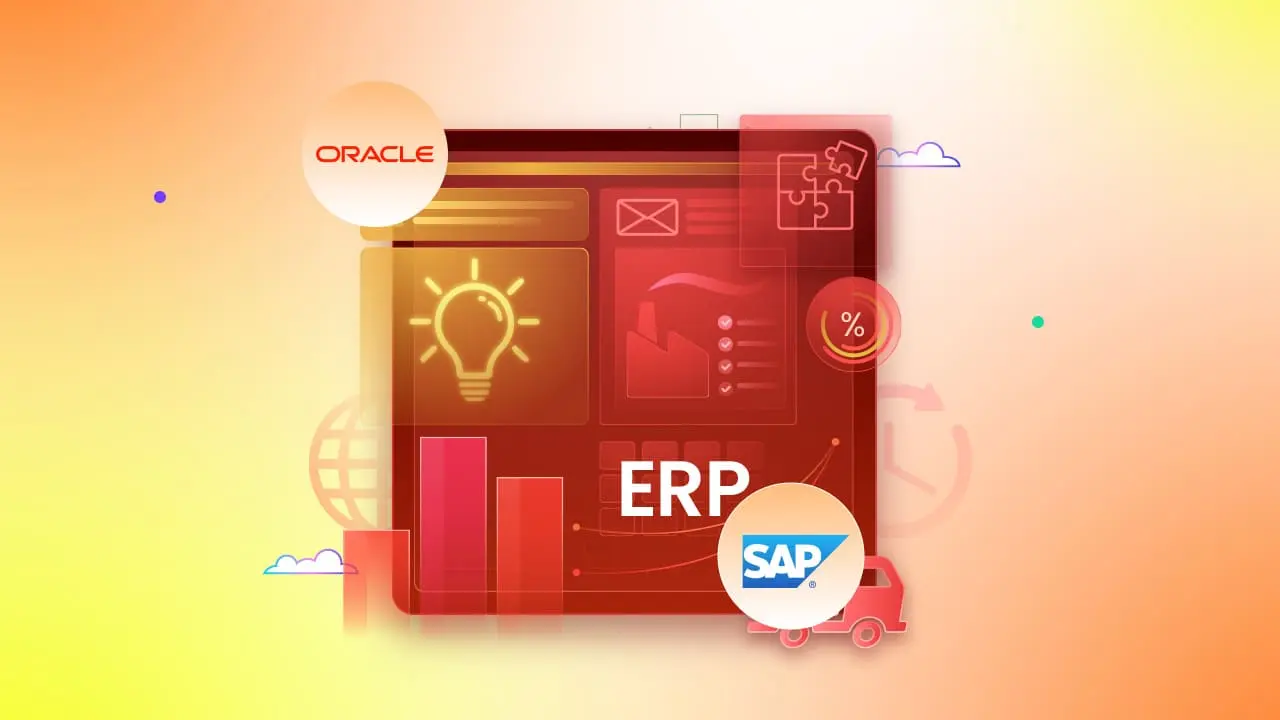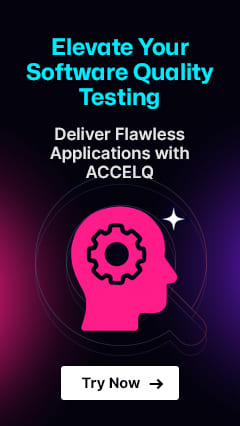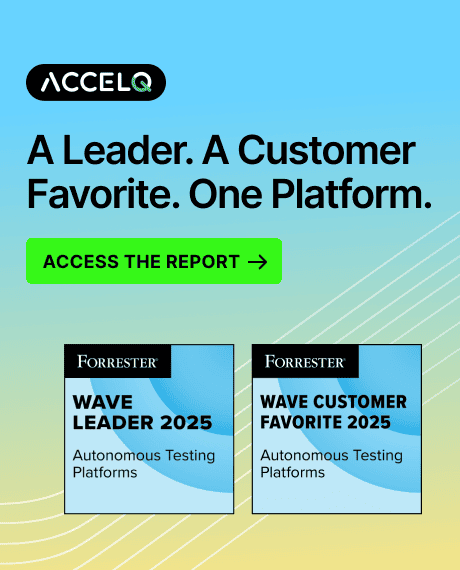ERP Modernization Testing for Oracle & SAP: What Enterprises Must Know

Enterprise systems, such as SAP and Oracle, are the backbone of several companies, driving supply chain management, finance, Human Resource Management, and user operations. As such platforms progress, upgrade, and transform, they become critical; however, they also introduce considerable threats. To ensure that new integrations, setups, and modernizations don’t interfere with critical processes, ERP testing is vital.
- What is ERP software testing
- Key Challenges in ERP Testing
- Role of AI in ERP Testing
- ERP Testing for Oracle Cloud Applications
- What is SAP enterprise resource planning?
- Cloud-based software testing automation solutions for SAP and Oracle ERP
- How ACCELQ Transforms ERP Modernization Testing?
- KPIs for Measuring ERP Testing Success
- Conclusion
What is ERP Software Testing?
ERP software testing is the approach of authenticating and checking the security, performance, functionality, and accuracy of an ERP (Enterprise Resource Planning) system like SAP or Oracle. The main objective is to confirm that each module, HR, finance, procurement, customer management, supply chain, and more, functions smoothly both separately and as an integrated whole.
This form of testing usually comprises:
- Performance Testing – Guaranteeing the ERP system can manage huge volumes of transactions under actual jobs.
- Integration Testing – Checking seamless data flow between external systems and ERP modules.
- Functional Testing – Guaranteeing business processes such as payroll or order management run appropriately.
- Compliance & Security Testing – Authorizing access control, user roles, and compliance with standards.
- Regression Testing – Checking that customizations, patches, or upgrades do not break current processes.
Core Challenges in ERP Testing
Although ERP software testing is crucial for confirming system accuracy, it comes with exclusive challenges that companies should address:
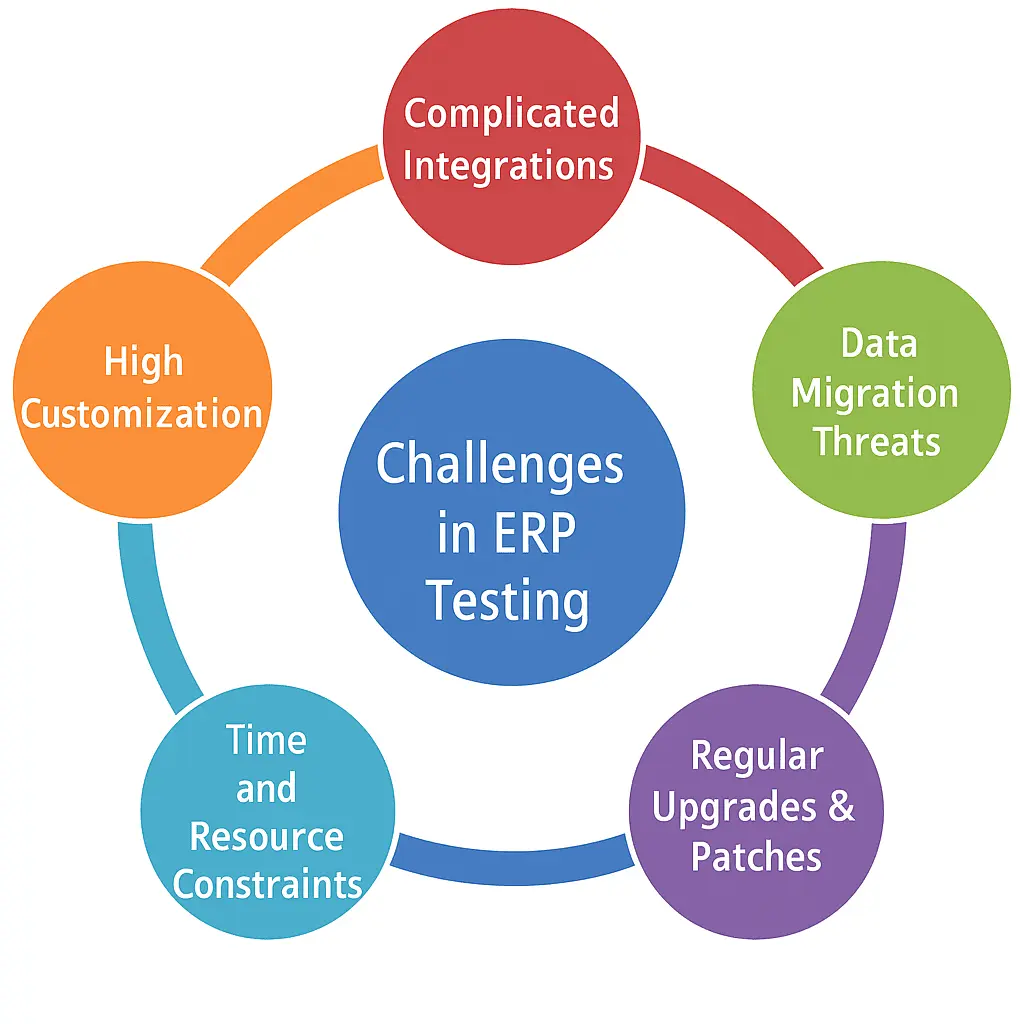
- Complicated Integrations: ERP platforms such as SAP and Oracle connect with several 3rd-party systems. Testing such integrations demands deep authentication of information flows and dependencies.
- High Customization: Most businesses customize ERP systems to match business requirements. Each customization adds intricacy and risk, making test coverage highly tricky and challenging.
- Data Migration Threats: During modernization or upgrades, high volumes of business-intensive data should be migrated. Confirming consistency and reliability through testing is a challenge.
- Regular Upgrades & Patches: Vendors release frequent updates, forcing enterprises to regularly validate crucial procedures with regression testing.
- Time and Resource Constraints: ERP projects are generally big-scale, demanding broad testing across modules, often under strict timelines.
Role of AI in ERP Testing
The rising intricacy of ERP systems has resulted in the acceptance of AI in enterprise resource planning testing. AI-centric tools improve ERP testing reliability and effectiveness by:
- Predictive Defect Exposure – AI scrutinizes past defects to find high-risk zones in ERP modules before testing starts.
- Smart Test Prioritization – AI confirms that the crucial processes (such as financial transactions or payroll) are tested first.
- Automated Test Case Creation – ML-based algorithms can create and optimize test cases based on business systems.
- Continuous Learning – AI-assisted models adjust over time as ERP systems grow, increasing reliability in finding potential failures.
- Decreased Human Effort – Automation powered by Artificial Intelligence (AI) reduces recurring jobs, freeing the software testing team to concentrate on business-critical validations.
Transform Oracle & SAP testing with a self-healing automation engine. Learn how Autopilot does it →
ERP Testing for Oracle Cloud Applications
As organizations move from on-premise to cloud-based systems, ERP testing for Oracle turned out to be a crucial part of the digital revolution. Oracle Cloud Apps are extremely robust, with regular quarterly updates that can affect HR, finance, supply chain, and procurement modules.
Oracle ERP cloud testing guarantees such updates do not interrupt business-critical systems. The procedure includes validating integrations, functionality, performance, and safety across each module after each update. Automated regression testing plays a pivotal role here, decreasing the threat of errors while expediting validation cycles.
Organizations sometimes leverage cloud-based software testing automation solutions for SAP and Oracle ERP to manage the scale and intricacy of regular updates. Such solutions offer fast execution, predictive insights, and reusable assets, guaranteeing business stability in cloud environments.
What is SAP Enterprise Resource Planning?
It is one of the leading providers of enterprise resource planning software globally, assisting enterprises in joining critical business functions like Supply Chain, human resource, finance, and manufacturing. SAP enterprise resource planning software enables seamless data flow across branches, allowing better productivity.
To guarantee reliability, SAP testing guarantees that every single procedure and module functions correctly after customizations, executions, or upgrades. This comprises integration testing, functional validation, security checks, and performance testing.
A devoted SAP ERP test procedure is particularly significant during S/4HANA migrations or system upgrades, where even slight problems can disrupt crucial operations. With appropriate test automation, companies can expedite delivery timelines while protecting process integrity.
Cloud-Based Software Testing Automation Solutions for SAP and Oracle ERP
As companies embrace digital transformation, testing needs to grow with the pace of business process change and cloud-centric updates. Manual validation isn’t scalable, particularly for complicated platforms such as SAP and Oracle. That’s where cloud-based software testing automation solutions for SAP and Oracle ERP deliver noteworthy value.
- ERP Automation Testing: Automated testing frameworks streamline regression testing, authenticate workflows quickly, and reduce threats linked with regular releases.
- Testing for Oracle Cloud ERP Implementations in the Apps: With quarterly updates, Oracle Cloud ERP testing ensures that mission-critical business procedures, such as finance, HR, and supply chain, continue to function smoothly after each release. However, this challenge isn’t exclusive to Oracle. SAP ERP and S/4HANA implementations also demand continuous validation to maintain stability across interlinked modules and integrations. Automated testing is critical for both ecosystems, whether Oracle Cloud or SAP. Intelligent, change-aware testing safeguards enterprise compliance, agility, and performance across each update cycle.
- ERP Testing Tools: Advanced testing solutions provide smart test creation, predictive analytics, and CI with DevOps pipelines.
- ERP Migration Testing: During cloud migrations or large-scale upgrades, automated validation guarantees stable integrations, data integrity, and process continuity.
How ACCELQ Transform ERP Modernization?
The platform is at the forefront of allowing smart, cloud-based software testing automation solutions for SAP and Oracle ERP. With its AI-powered, no-code platform, ACCELQ reorganizes ERP testing by:
- Automating E2E scenarios across SAP, Oracle Cloud, and integrated enterprise apps.
- Offering predictive insights that detect high-risk zones before failures occur.
- Providing continuous regression authentication to manage regular ERP updates.
- Supporting ERP migration testing, guaranteeing seamless transitions with slight disruption.
KPIs for Measuring ERP Testing Success
To assess the efficiency of ERP testing, enterprises must track KPIs that align test results with business goals. Standard KPIs comprise
- Defect Identification Rate – Percentage of errors found during ERP tests versus post-deployment.
- Test Coverage – Extent of integration and functional situations covered by manual and automated testing.
- Test Implementation Time – Effectiveness gained through ERP automation testing, particularly during regression cycles.
- Defect Leakage – No. of flaws that escape into production exposes gaps in test coverage.
- Automation return — Time and cost savings achieved by implementing ERP testing tools and automation testing frameworks.
- Business Process Continuity — Authentication that critical ERP workflows (payroll, finance, supply chain) run effortlessly after migrations or updates.
Conclusion
ERP modernization brings creation and agility, but it also introduces threats that demand a smart and structured testing approach. From SAP migrations to Oracle ERP Cloud-centric updates, enterprises should confirm their systems remain accurate, compliant, and safe.
Embracing AI-driven platforms such as ACCELQ, one of the ERP testing tools, supports enterprises in streamlining ERP testing, automating complicated systems, and decreasing migration risks, all while enhancing speed and quality.
To discover how smart automation can transform your ERP modernization path, Contact Us now and future-proof your enterprise systems.
Nishan Joseph
VP Sales Engineering
Nishan is a tech strategist with expertise in Test Automation and roles at giants like TCS, Microfocus, and Parasoft. At ACCELQ, he champions Strategic Alliances, cultivating global tech partnerships. Educated at Leeds University and Symbiosis Pune, he also possesses an engineering background from Bangalore.
You Might Also Like:
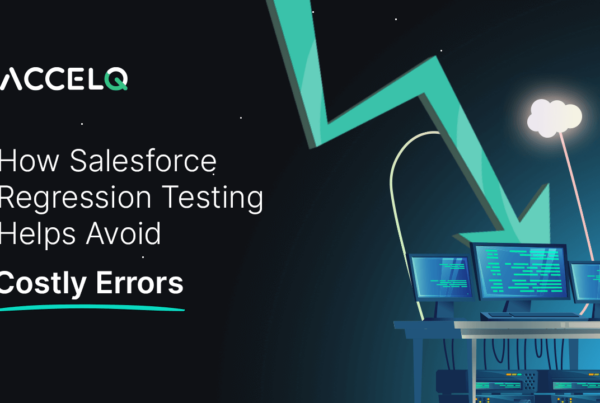 Understanding Regression testing in Salesforce
Understanding Regression testing in Salesforce
Understanding Regression testing in Salesforce
 What Is Salesforce Genie?
What Is Salesforce Genie?
What Is Salesforce Genie?
 How Digital Assurance Testing Protects Tech Systems?
How Digital Assurance Testing Protects Tech Systems?






























